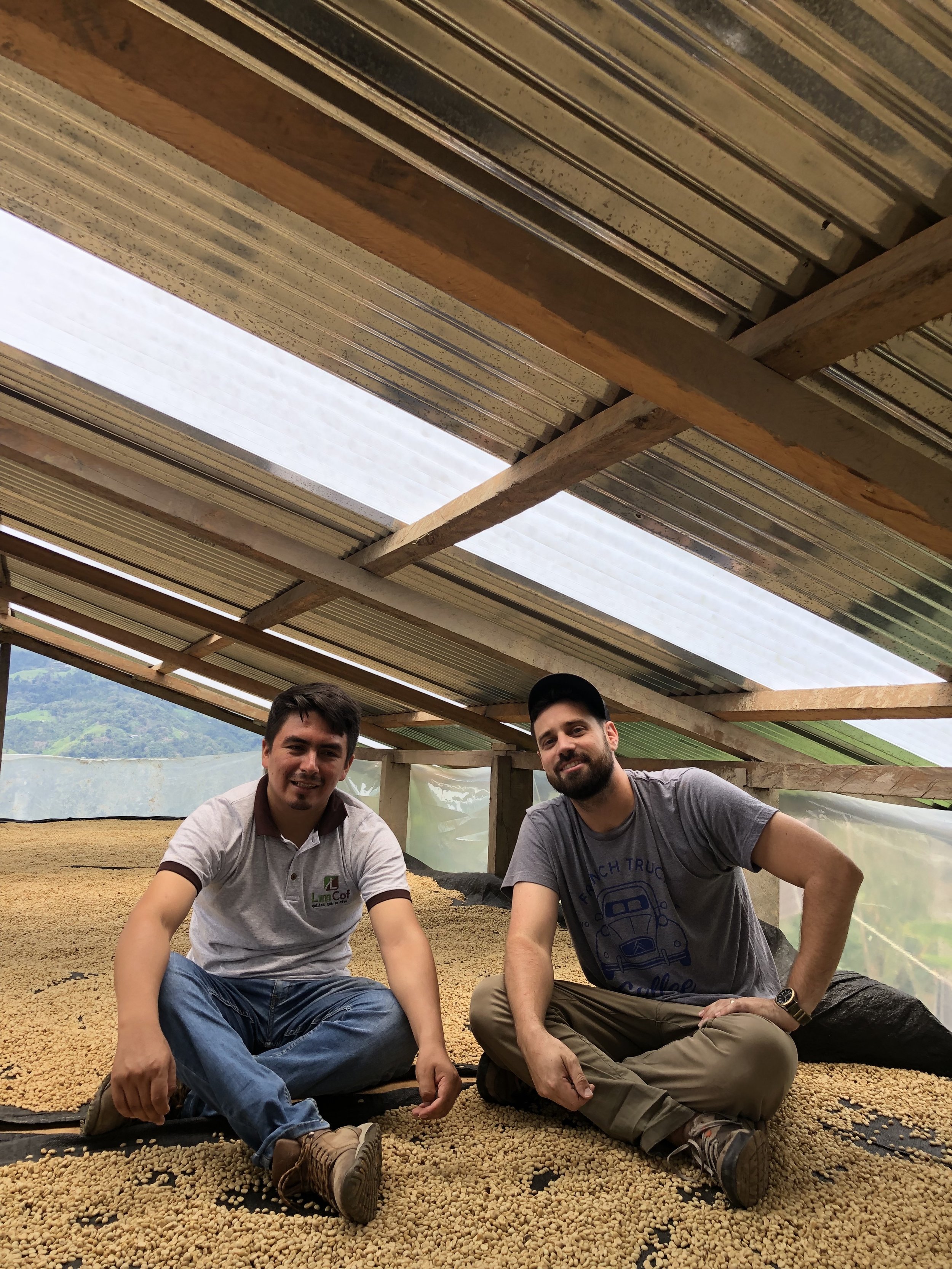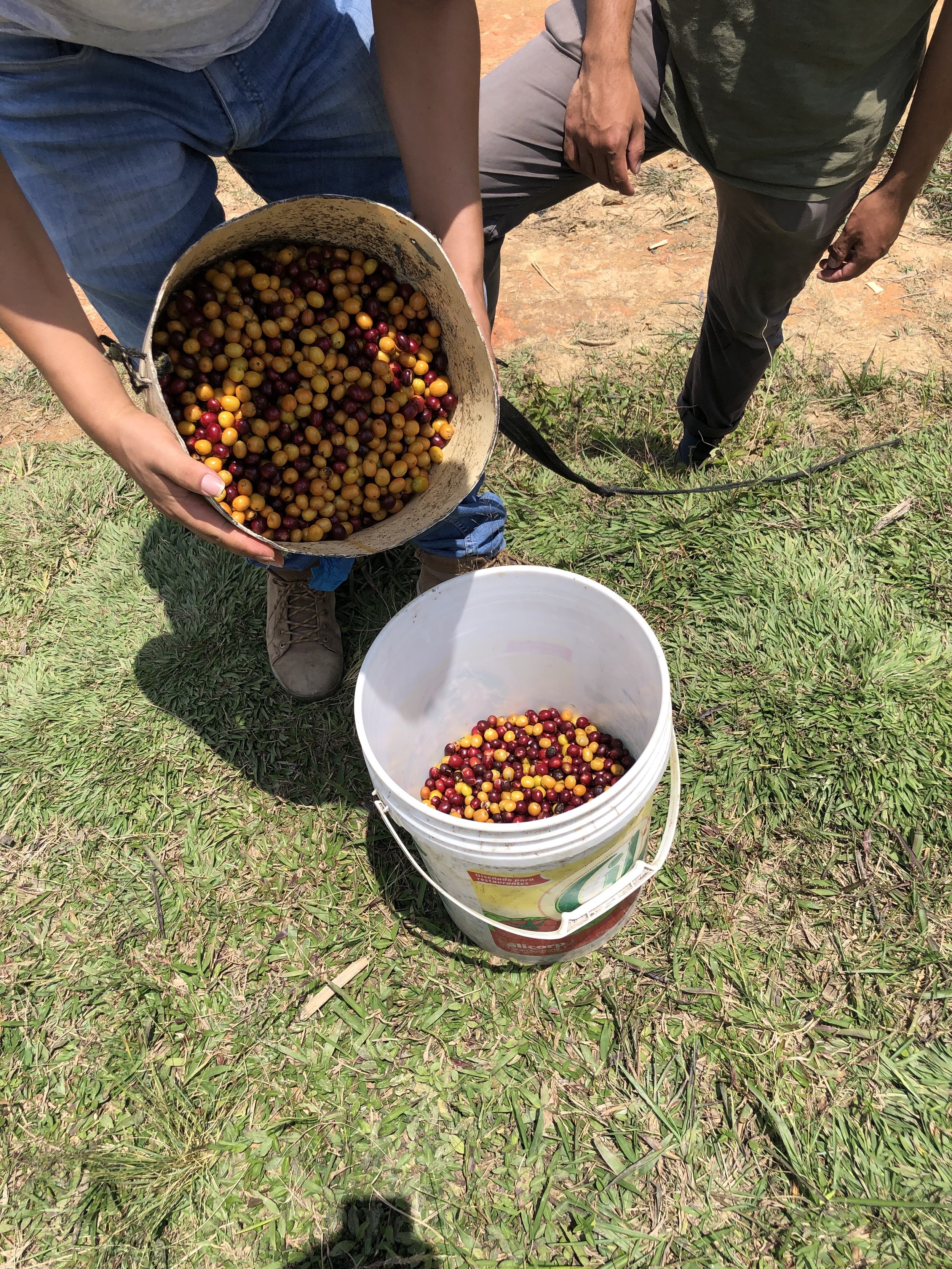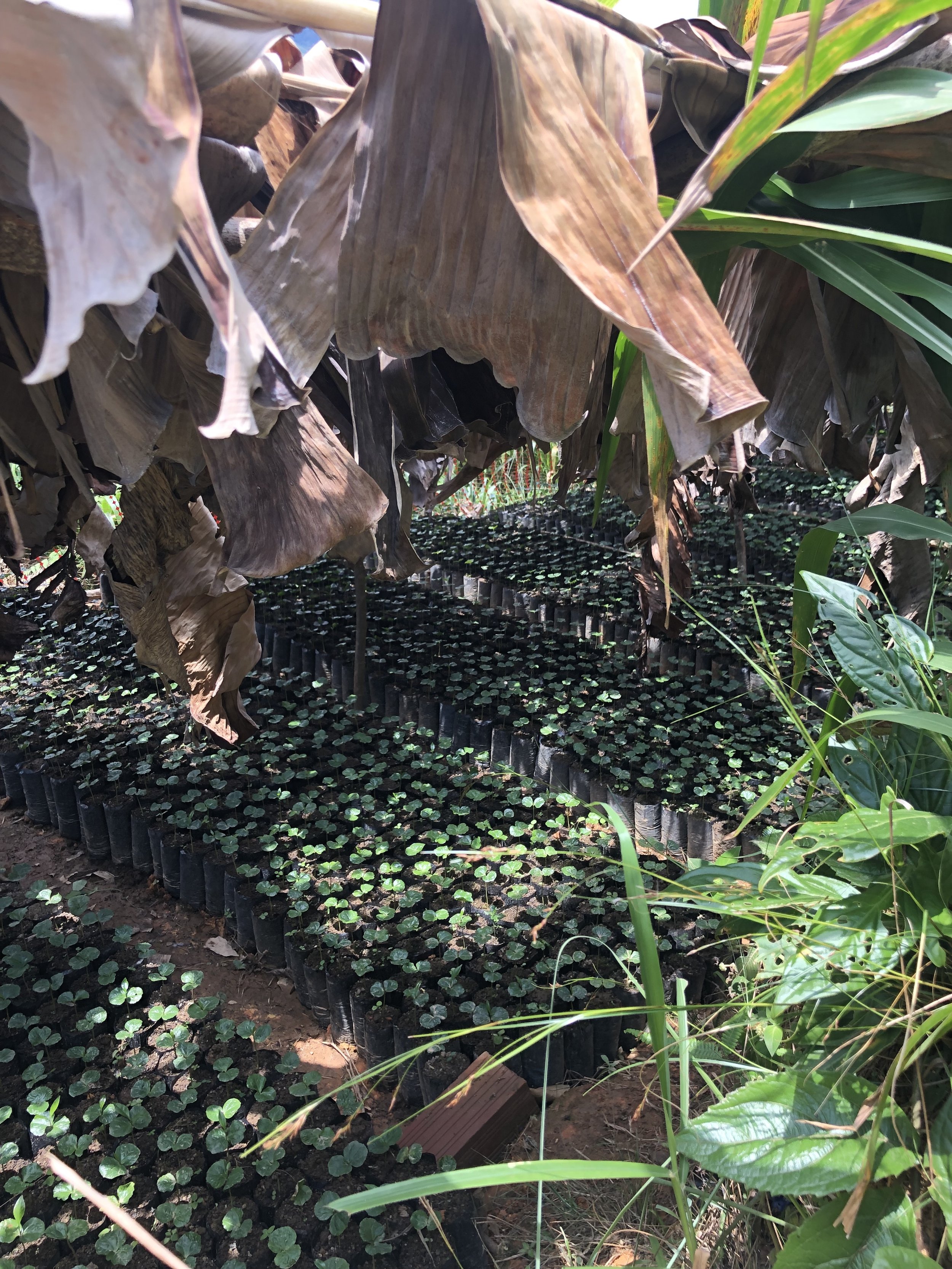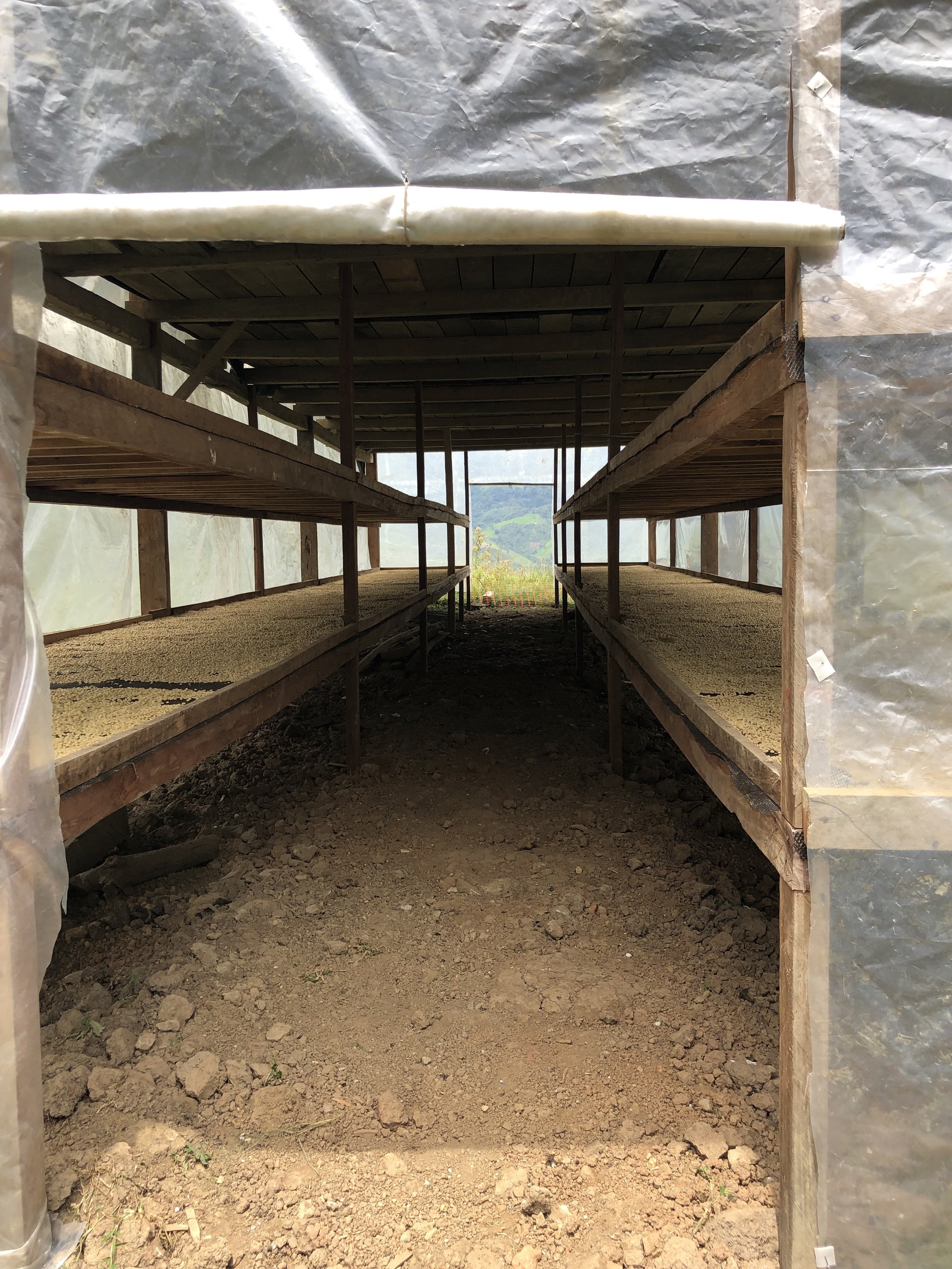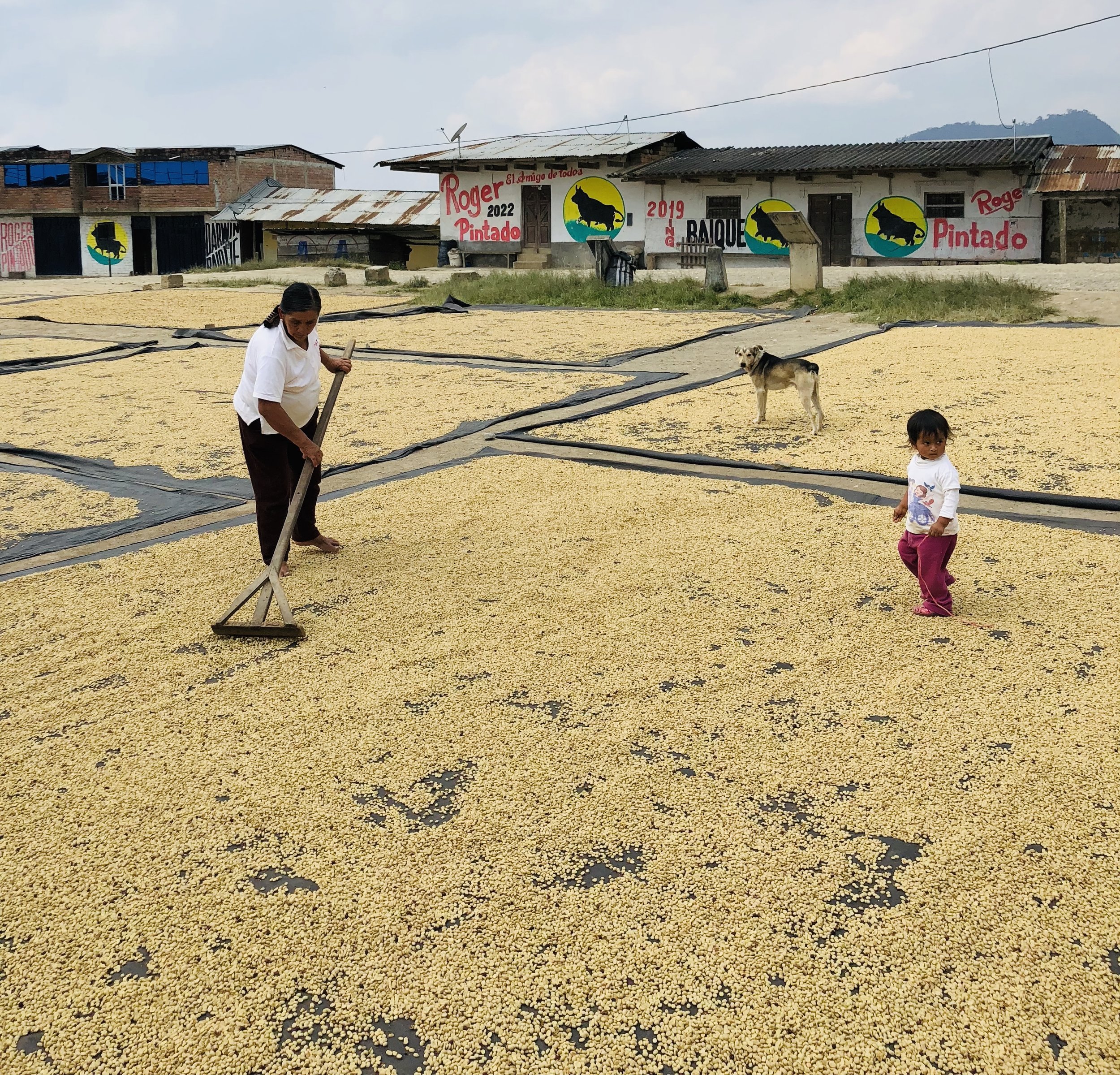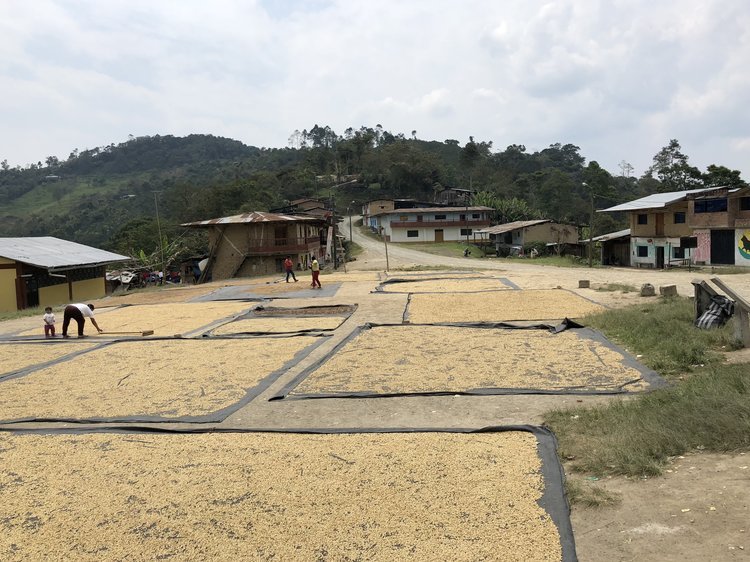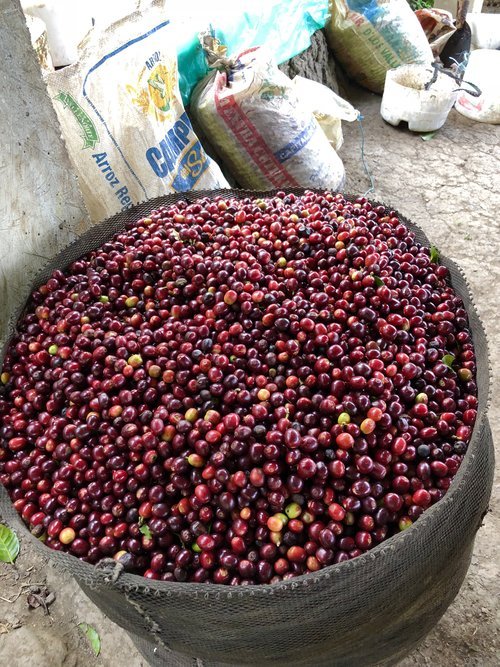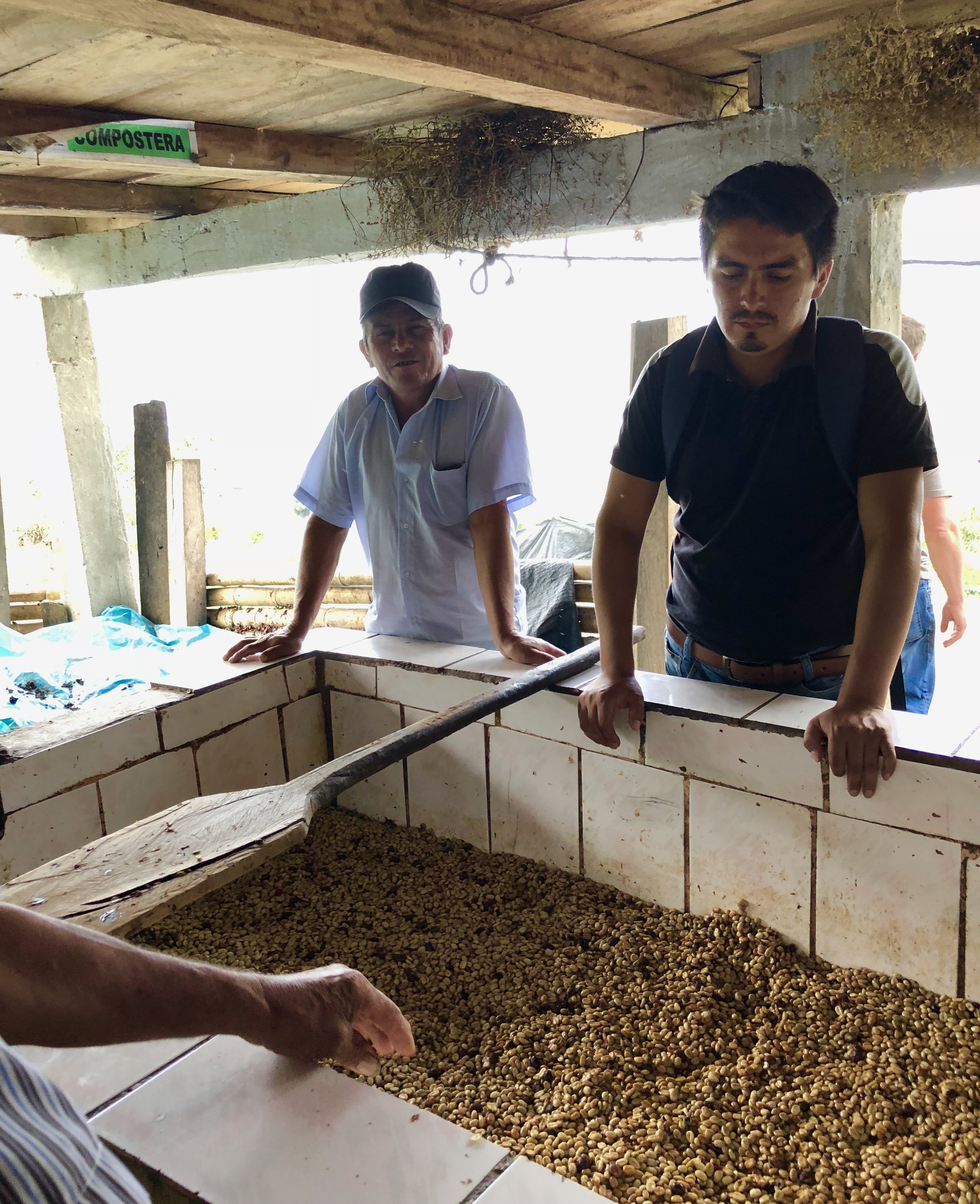This will be our 5th year buying coffee from Gilmer and his family! We are thrilled to have reached this mini milestone with him. This offering is one of our best examples of “Relationship Coffee”. We use WhatsApp to text with Gilmer all throughout the year, getting updates from the farm. It was another challenging year with Covid 19 and finding enough help to pick all the coffee cherries. Through it all the coffee has been excellent, and we are happy to share this latest harvest with everyone. Below is an updated overview of Gilmer’s farm.
Gilmer Meija’s 7 hectare organic farm is a testament to his family’s commitment to quality coffee and being good stewards of the land. This level of quality is transparent in the cup. While we weren't able to visit with Gilmer this past few years, we have visited his farm on several occasions in the past. In the fall of 2019 we got to spend the entire day with Gilmer and his family on the farm, connecting and learning more about their operation. They have a modest house just down the road from the farm. They have turned their “backyard” into a mini processing center. They ferment, depulp and wash freshly picked cherries, and have also built a small, covered, drying area to dry and store the coffee.
The respect they have for the land is also a way of life, with Gilmer and his brother referencing Pachemama as a guiding influence in their work. In Incan mythology Pachamama is a goddess worshiped by indigenous people of the Andes. She is also known as Mother Earth, presiding over harvesting, and planting. This is evident in the way they work and live on the farm. About 30% of the organic farm is covered with shade trees. To create a healthy ecosystem, the Meija’s only use about 4 acres for coffee and the rest is left for other fruit trees. On the farm there are cedar trees, pineapple plants, and guava.
Gilmer’s brother, father, and mother all work year round on the farm. During harvest season, which is from June to October, pickers come from a nearby town. Harvest is typically 5-6 pickers a day, 3-4 days a week. Previously, all varieties of coffee they had were mixed together. Now after some renovations they will be separating varieties, so they can offer single variety coffee. On the farm currently Gilmer has Red Bourbon, Yellow Bourbon, Yellow Caturra, Red Caturra, Pache, and some new Geisha he just planted. Most of the trees are 6-8 years old. After picking, the coffee is depulped that afternoon and then fermented for up to 70 hours, without water, in the tank on their property. It is then washed and dried on raised beds in a covered environment. This allows you to control the temperature of the drying. Typically it takes about 25 days to dry. They turn the coffee 2-3 times a day, for even drying. If this crucial step is not performed the coffee might develop a fungus that would taint its flavor. Long and slow drying times at this altitude allows for better cup scores and the sugars are more concentrated and more consistent. Gilmer built some new drying beds a few years back, to ensure all his coffee can dry evenly on the farm.
Finca Ecologica, sits right below a forest, creating a very biodiverse and healthy ecosystem. The top of the forest above Finca Ecologica sits at 8,400 feet above sea level, and as you go down the mountain and into Finca Ecologica the elevation is 5,550 ft, which is on the high end for growing coffee. The Mejia's farm is a shining example of small holding producer coffee in this region. The land is extremely fertile, with the soil being very rich. La roya, or leaf rust, which has decimated large parts of Central American coffee farms, has not been found in the Cajamarca region of Peru. The mountains around the valley of Jaen are rugged, jutting straight up, making access difficult. In general this area of Peru has less infrastructure and is less developed than in neighbouring Colombia. However the land feels more wild, with delicious coffee growing organically. Peru still has tons of potential to produce more specialty coffee. We are seeing improvements every year. It's clear there is a symbiotic connection with nature and the Meija family. We are very proud and excited to be working more closely with Gilmer year over year.


